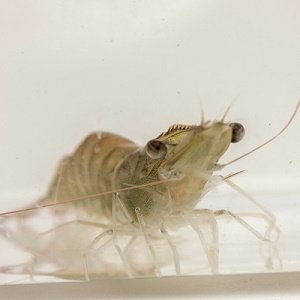Sustainable Fisheries Partnership (SFP) is pleased to announce the initiation of a new sustainable aquaculture improvement project in Indonesia.
The project, scheduled for two years in Banyuwangi, East Java, will focus on improving the sustainability of aquaculture in the region, as well as governance and management of ongoing shrimp farming.
“Effective management of the natural resource base and protection from disease is critical to ensure the long-term investability of the shrimp industry,” said SFP Aquaculture Director Anton Immink.
SFP is working to coordinate the project, together with Conservation International, IDH—the Sustainable Trade Initiative, and Longline Environment. The Indonesian Ministry of Marine Affairs and Fisheries, the Indonesian Ministry of National Development Planning, and the Financial Service Authority of Indonesia will all be collaborating on the project as well.
“This program will support the ministry’s efforts to grow sustainable shrimp exports from Indonesia,” said Machmud, Directorate General of Product Competitiveness for the Indonesian Ministry of Marine Affairs and Fisheries.
The approach is designed to address disease risks and environmental impacts across a politically and ecologically relevant location, to attract investment and insurance, and create a scalable model that can be exported to other geographies.
“This project builds positively on the guidelines we jointly developed and creates the action needed to ensure a sustainable future for the shrimp industry in Indonesia,” said Dane Klinger, Aquaculture Innovation Fellow at CI.
The project is supported by the Walton Family Foundation and the Packard Foundation.
Stay Always Informed
Join our communities to instantly receive the most important news, reports, and analysis from the aquaculture industry.
Editor at the digital magazine AquaHoy. He holds a degree in Aquaculture Biology from the National University of Santa (UNS) and a Master’s degree in Science and Innovation Management from the Polytechnic University of Valencia, with postgraduate diplomas in Business Innovation and Innovation Management. He possesses extensive experience in the aquaculture and fisheries sector, having led the Fisheries Innovation Unit of the National Program for Innovation in Fisheries and Aquaculture (PNIPA). He has served as a senior consultant in technology watch, an innovation project formulator and advisor, and a lecturer at UNS. He is a member of the Peruvian College of Biologists and was recognized by the World Aquaculture Society (WAS) in 2016 for his contribution to aquaculture.






